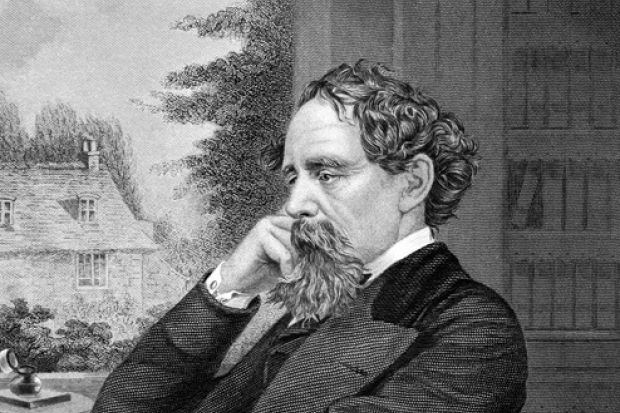The most popular form of writing about literature is literary biography. So it is curious that academic literary studies has maintained such an enduring distaste for the genre.
Neither the traditionalists nor the theoreticians have had any time for the notion of the author as a “real” individual. The former regarded the reader’s desire to know the artist through their work as vulgar and unwholesome. The latter generally agreed that since literature cannot be defined as a form in its own right, authors are not originators but rather participants in a discursive zone that all but eradicates individuality. Roland Barthes’ 1967 essay “The Death of the Author” is exemplary, and while a wry smile may be detected behind its jargon, the French literary critic’s acolytes – who included the vast majority of the new generation of academics – took it all seriously.
It is reluctantly conceded, for the purposes of teaching, that authors were once alive, and some knowledge of their social and political circumstances is generally deemed expedient. Yet it is regarded as deviance to claim some sense of why an author’s various degrees of lunacy, alcoholism, degeneracy or boredom contribute vitally to an understanding of what they wrote.
At the other end of the spectrum, trade biographers deploy an interpretive adventurism that universities treat with disdain – probably because it entertains the general reader. The novelist and biographer Peter Ackroyd is the classic practitioner of what is known as “biomythography”: an implicit abandonment of a search for truth composed of verifiable facts and a reliance instead on speculation and fantasy. He based his 1990 biography of Charles Dickens on his belief that his subject “saw reality as a reflection of his own fiction”. Ackroyd saw himself as a fellow traveller in this regard and confidently attested to Dickens’ views as if he had heard them from the horse’s mouth.
No doubt academic biographers contemplate this playground of unlicensed fun with a mixture of disapproval (“How dare they disregard both scholarly pedantry and the intellectual high-mindedness of theory!”) and quietly repressed envy. If they were ever to cross the fence, similarly inserting themselves into their books by imitating their subjects’ styles and asking them direct questions, their peers would deem them certifiable, if not unpublishable.
Another non-academic approach to literary biography might be termed shifted-focus. A good example is Alison Light’s 2007 book Mrs Woolf and the Servants, in which she takes a look at the people who maintained the households of one of the 20th century’s most celebrated feminist writers – most of whom were apparently treated as almost subhuman. The technique was pioneered by Claire Tomalin, who, in The Invisible Woman (1991), speculates wickedly on the experiences of Dickens’ “secret” mistress Nelly Ternan, leaving a trail of accusations about the novelist in her path.
Then, of course, we have literary biographies that carry a crowd-pleasing subtext. These sometimes result from a falling-out with the subject or their executors. For instance, Anthony Thwaite and Andrew Motion both dealt with the legacy of Philip Larkin with sniffy detachment, as if he were their magnificently talented uncle who had an unfortunate attraction for porn and bad-mouthing foreigners – and the media had a field day. I, too, made the news when writing my 2011 biography of Martin Amis. If only they knew the whole story. He sent me numerous outraged emails, once accusing me of having “an ugly nature’’ and demanding a “letter of appalled contrition”. I didn’t like him very much, either.
We need to remove the boundary between the mad world of trade biographies and its dull academic counterpart. Biographers should entertain, unsettle, perhaps anger students with pacy stories of writers’ lives. They could even express the view that their subjects weren’t very agreeable as individuals or particularly talented as artists. And the suggestion that their subjects never existed in any meaningful sense should be consigned to the graveyard of misguided intellectualism.
Richard Bradford is research professor of literary history and theory at Ulster University. He has been commissioned by Blackwell/Wiley to edit a series of radical, opinionated literary biographies. His latest book, The Man Who Wasn’t There: The Life of Ernest Hemingway, is published this month. So, too, is his edited Companion to Literary Biography.
后记
Print headline: Give life stories more life




